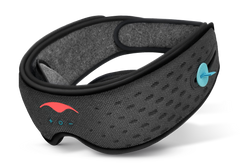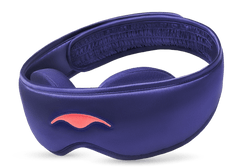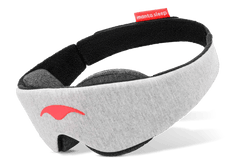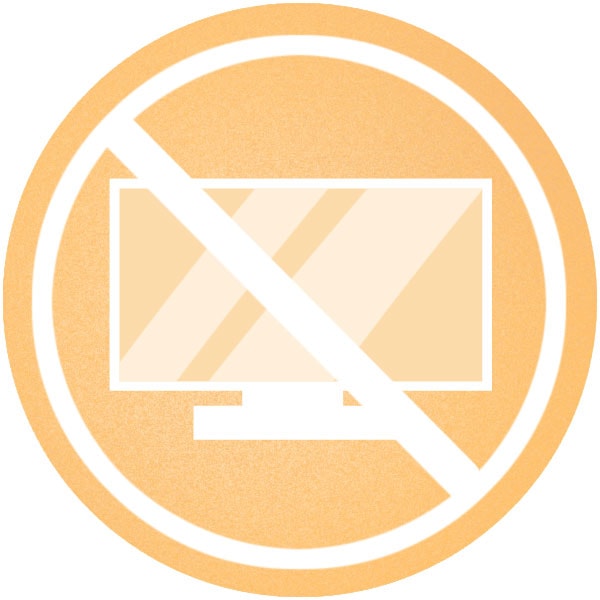Bad Night of Sleep? Television Is to Blame!
Does your pet demand you to leave on Keeping Up with the Kardashians so he can catch some z’s?
If your pet doesn't need the television to fall asleep, neither do you.
Many of us enjoy sitting and watching our favorite show at night before we go to bed. The familiar sounds and faces comfort us and ease our daily stress.
But this nighttime ritual possesses many negatives for our health, particularly when it comes to our sleep patterns.
Television's Harmful Effects
The television is a staple of a large percentage of American households.
According to the National Sleep Foundation, “About two-thirds of baby boomers (67%) and Generation X'ers (63%)... watch television every night or almost every night within the hour before going to sleep.” (1)
Additionally, about 49% of Generation Y'ers and 50% of Generation Z'ers do the same.
That’s a lot of generations!
Unfortunately, the light generated from the television screen has a greater effect on your sleep than you may realize.
Blue Light Blues
When your television is on, it produces a type of light called blue light.
Blue light halts the production of the hormone melatonin, which helps you feel drowsy and ready to fall asleep. It also increases your levels of cortisol, a hormone that can deprive you of sleep.
While it’s possible to fall asleep watching your favorite show, exposure to blue light may delay REM sleep onset and cause morning drowsiness. (2)
Watching TV 🔜 Obesity?
A link to obesity makes watching television even more dangerous to your health. Besides an increase in cortisol, sleeping with the tv on also increases the hormone ghrelin, which stimulates appetite. (3)
At nighttime, when you’re tired and unlikely to go rooting around in the kitchen for a healthy snack, you reach for a bag of chips or dessert.
This regular habit can not only botch your diet but possibly increase the chance of diabetes. (3)
We've been told that television can rot the brain. Who knew it could wreck our bodies too?
Don't Go Into the Light!
It's hard to believe one source of light can be so damaging to our sleep and our health. So why is blue light in particular so destructive?
A decrease in melatonin production is one reason. The other? The disruption of our circadian rhythm.
Like clockwork, our circadian rhythm is how we function on a 24-hour basis. Also called the sleep/wake cycle, it regulates your individual periods of wakefulness and drowsiness.
Blue light breaks up this cycle, telling your brain you're not tired when you actually are while also stalling the onset of deep REM sleep.
As Sleep.org puts it, "[E]ven if you think that you're sleeping fine, you might not be getting the quality sleep you need.” (2)
Under One Condition
When you wash your hair, you use conditioner, right?
Not only that, you probably use your favorite brand of conditioner to get the results you want. But many conditioners offer the same advantages, not just your preferred brand.
What happens is that you believe only your preferred brand can give you the results you want, regardless of other alternatives.
The Conditioner Connection
In this way, television is like your conditioner. You've become so accustomed to using it to fall asleep at night, you start to believe you won’t have the same results without it.
This is why so many people rely on television to get to sleep. The habit has gradually become so ingrained in their schedule, it’s irreplaceable.
You didn’t use television to fall asleep when you were little, so don’t let it dictate yourself sleep now. You're the only one that can change the cycle.
It's time to try a new conditioner!
Alternatives to TV
1. Turn It Off (Early!)
Have you ever tried sleeping with the lights on?
Light impairs your ability to fall asleep while darkness causes less strain, making it more conducive to sleep. With television, the same rules apply.
It's recommended you turn off your television set 2-3 hours before you go to bed so the blue light won’t disturb your sleep. Plus, the peace and quiet will transition you into sleep mode more smoothly.
2. Journal
During the day, our brain fills with worries and uncertainties that can take a toll on our sleep.
Writing down these thoughts at the end of the day is cathartic and lets your mind ease its stress out onto the page. Creative souls can use this opportunity to craft their next masterpiece.
So power down the television and pick up a pen. Better than watching angry housewives any day.
3. Read
You don’t have to watch the next great drama. Read it! Picking up a classic or devouring the hottest bestseller can keep you entertained without keeping you up at night.
Reading is incredibly relaxing, which can be rewarding for your sleep. Snuggle up with a good book and let your mind wander.
You may find yourself nodding off just from staring at the page!
4. Meditate
If you’re having trouble sleeping, take five minutes to focus on your breath. Just your breath.
During meditation, our minds tend to wander which makes this task surprisingly difficult. But that effort is exactly what will help you fall asleep.
Greatist (4) recommends doing a type of meditation known as Sama Vritti or “Equal Breathing” before you go to bed. Breathe in for four seconds, hold for four seconds, and exhale for four seconds.
Do this repeatedly and you may find meditation is your pathway to better sleep.
5. Listen
Since it's the visuals that tend to cause sleep problems, try listening to your shows instead. (5)
It may be harder on a regular television set, but turn away from your phone, e-book, or tablet when you want to hear the latest news or podcast.
You’ll get all the benefits of enjoying your favorite show without the light damaging your sleep.
Recondition Your Viewing Habits
Your best sleep doesn’t come from watching reruns. It comes from shutting off the television and learning to sleep without it.
Switching one habit for another can be tricky, but the benefits for your sleep prove the change is worth it.
Your pet won’t mind!
Sources:
(1) "Annual Sleep in America Poll Exploring Connections with Communications Technology Use and Sleep." National Sleep Foundation, 7 Mar. 2011, www.sleepfoundation.org/media-center/press-release/annual-sleep-america-poll-exploring-connections-communications-technology-use-
(2) "Is it Bad to Watch TV Right Before Bed?" Sleep.org, www.sleep.org/articles/is-it-bad-to-watch-tv-right-before-bed/. Accessed 17 Oct. 2018.
(3) Marshall, Lisa. "Is Blue Light Bad For Your Health?" WebMD, www.webmd.com/sleep-disorders/news/20170619/is-blue-light-bad-for-your-health. Accessed 17 Oct. 2018
(4) Shakeshaft, Jordan. "6 Breathing Exercises to Relax in 10 Minutes or Less." Greatist, 15 Sep. 2015, www.greatist.com/happiness/breathing-exercises-relax
(5) Brady, Krissy. "Is Falling Asleep With the TV On Really That Bad?" Health.com, 16 Jul. 2018, www.health.com/sleep/falling-asleep-tv-on







































![Manta Sleep Earplugs [10 Pairs]](https://cdn05.zipify.com/sQQA6xKYQn2FecyvgbWD1D8WnoA=/fit-in/1030x0/d40324cb6efd43759b43e4dbb4c2c84f/earplugs.jpg)

